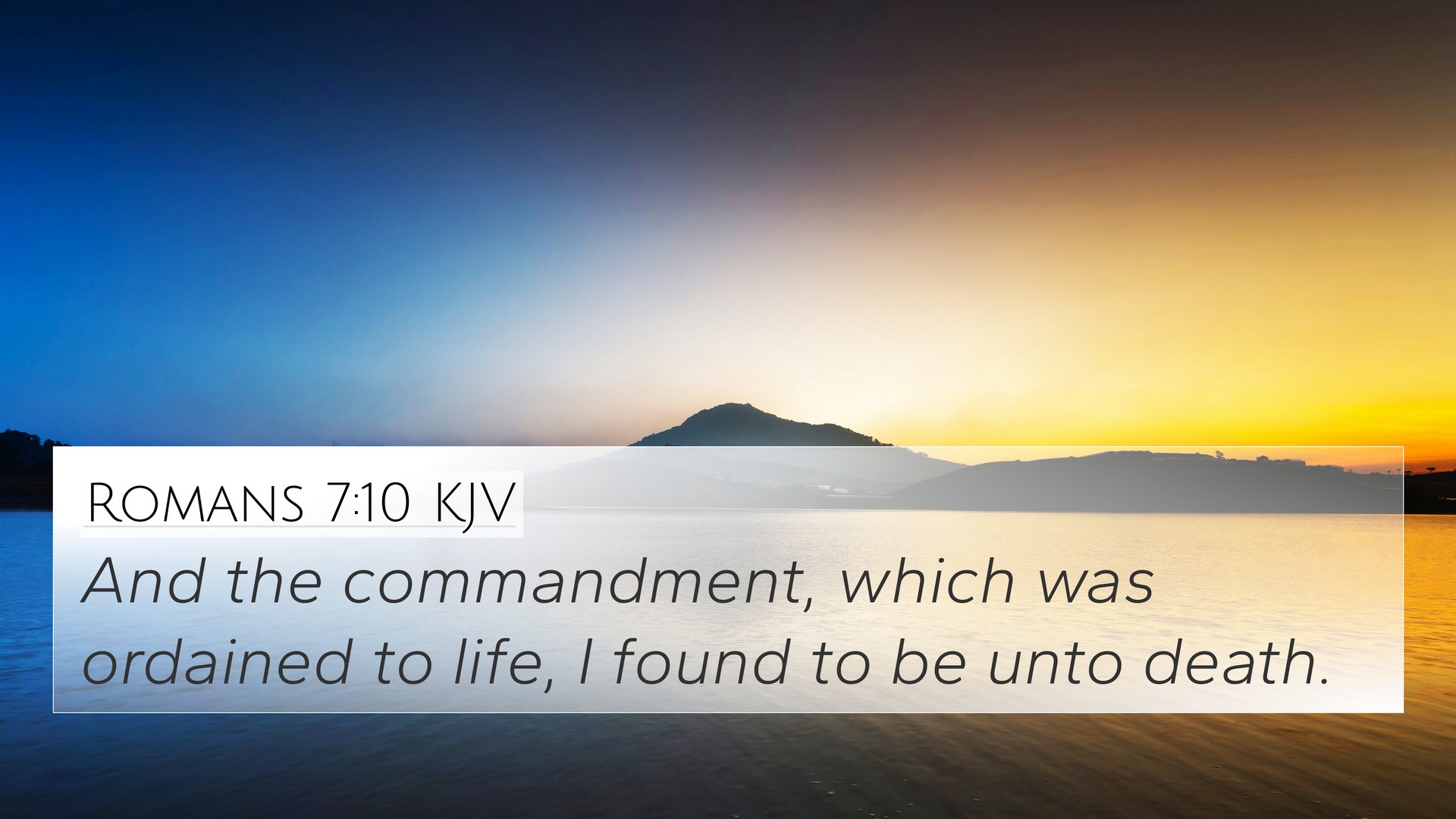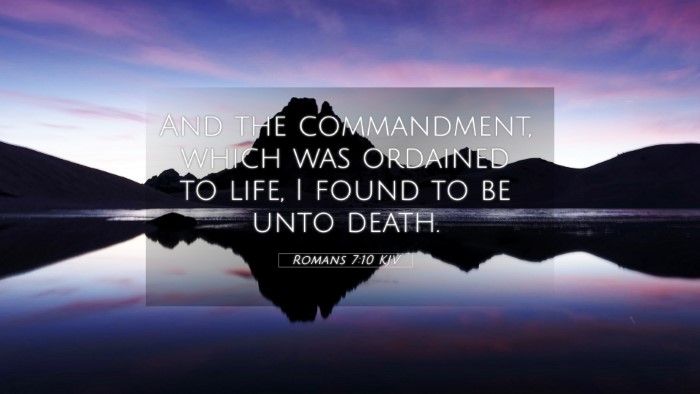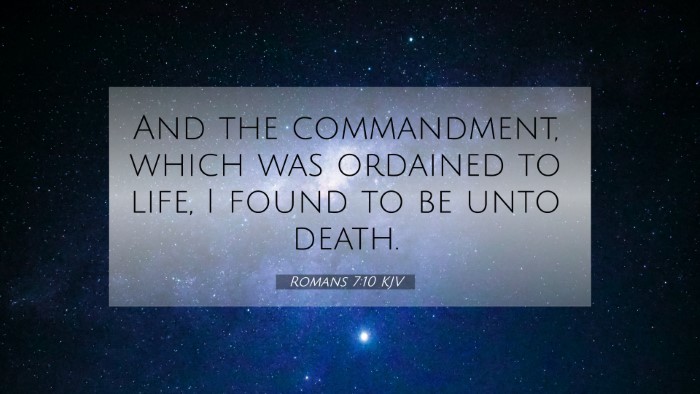Old Testament
Genesis Exodus Leviticus Numbers Deuteronomy Joshua Judges Ruth 1 Samuel 2 Samuel 1 Kings 2 Kings 1 Chronicles 2 Chronicles Ezra Nehemiah Esther Job Psalms Proverbs Ecclesiastes Song of Solomon Isaiah Jeremiah Lamentations Ezekiel Daniel Hosea Joel Amos Obadiah Jonah Micah Nahum Habakkuk Zephaniah Haggai Zechariah MalachiRomans 7:10 Similar Verses
Romans 7:10 Cross References
And the commandment, which was ordained to life, I found to be unto death.
Uncover the Rich Themes and Topics of This Bible Verse
Listed below are the Bible themes associated with Romans 7:10. We invite you to explore each theme to gain deeper insights into the Scriptures.
Romans 7:10 Cross Reference Verses
This section features a detailed cross-reference designed to enrich your understanding of the Scriptures. Below, you will find carefully selected verses that echo the themes and teachings related to Romans 7:10 KJV. Click on any image to explore detailed analyses of related Bible verses and uncover deeper theological insights.
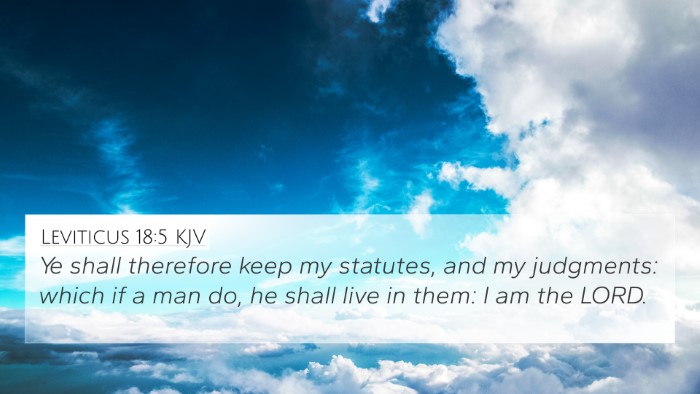
Leviticus 18:5 (KJV) »
Ye shall therefore keep my statutes, and my judgments: which if a man do, he shall live in them: I am the LORD.
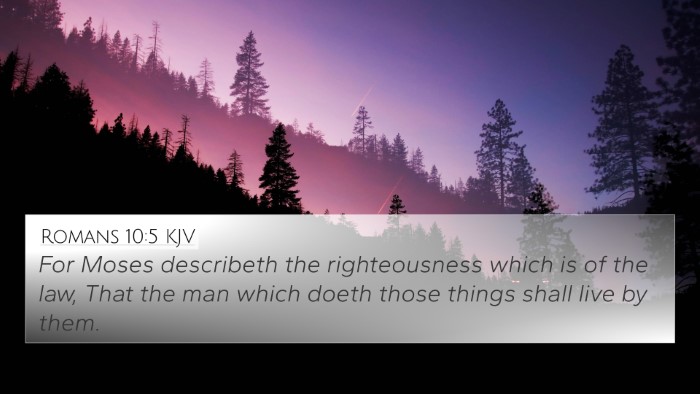
Romans 10:5 (KJV) »
For Moses describeth the righteousness which is of the law, That the man which doeth those things shall live by them.
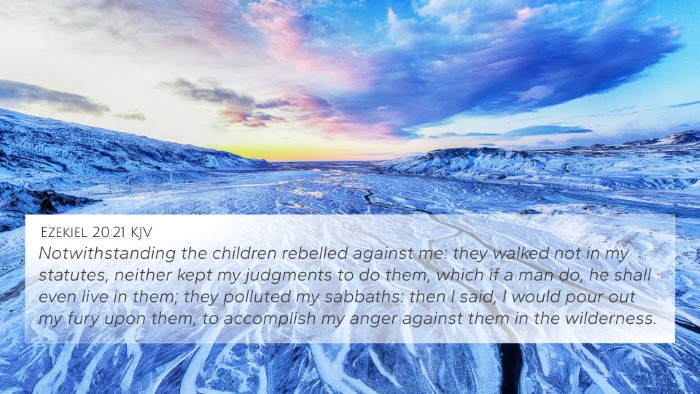
Ezekiel 20:21 (KJV) »
Notwithstanding the children rebelled against me: they walked not in my statutes, neither kept my judgments to do them, which if a man do, he shall even live in them; they polluted my sabbaths: then I said, I would pour out my fury upon them, to accomplish my anger against them in the wilderness.
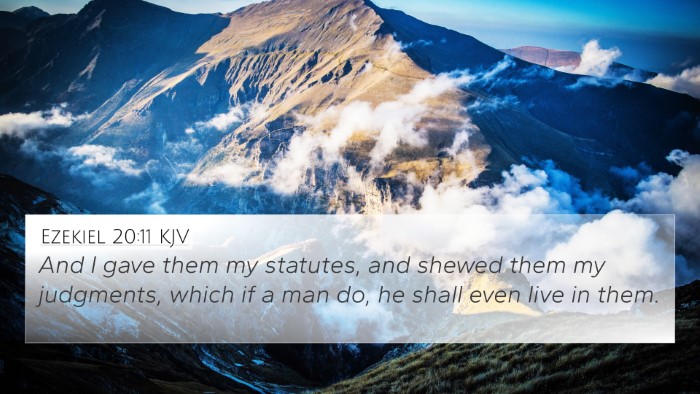
Ezekiel 20:11 (KJV) »
And I gave them my statutes, and shewed them my judgments, which if a man do, he shall even live in them.
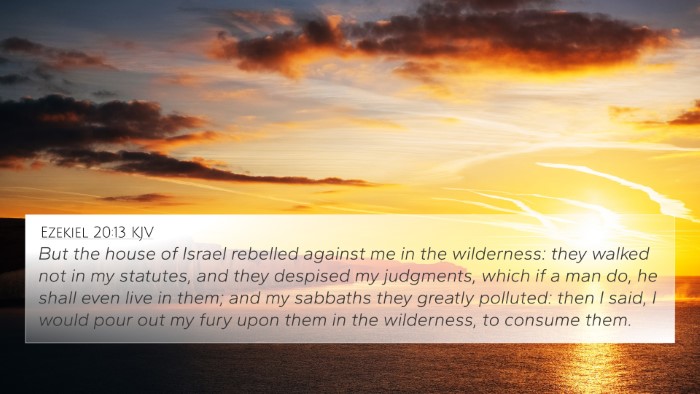
Ezekiel 20:13 (KJV) »
But the house of Israel rebelled against me in the wilderness: they walked not in my statutes, and they despised my judgments, which if a man do, he shall even live in them; and my sabbaths they greatly polluted: then I said, I would pour out my fury upon them in the wilderness, to consume them.
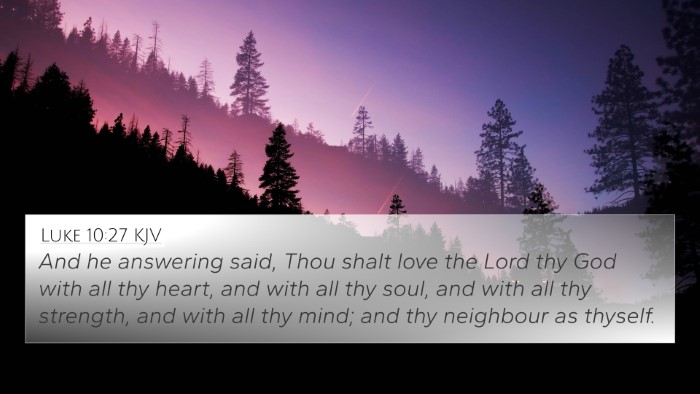
Luke 10:27 (KJV) »
And he answering said, Thou shalt love the Lord thy God with all thy heart, and with all thy soul, and with all thy strength, and with all thy mind; and thy neighbour as thyself.
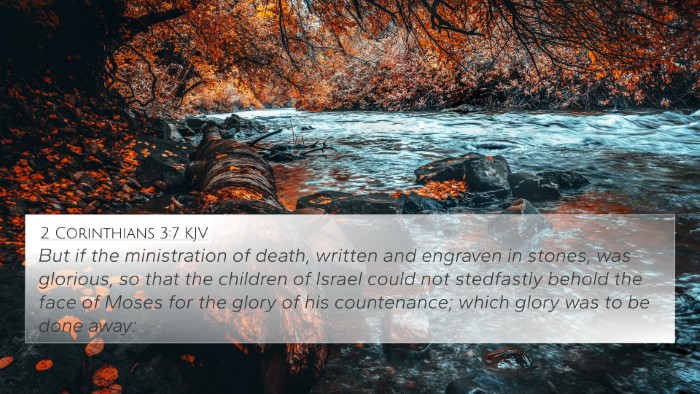
2 Corinthians 3:7 (KJV) »
But if the ministration of death, written and engraven in stones, was glorious, so that the children of Israel could not stedfastly behold the face of Moses for the glory of his countenance; which glory was to be done away:
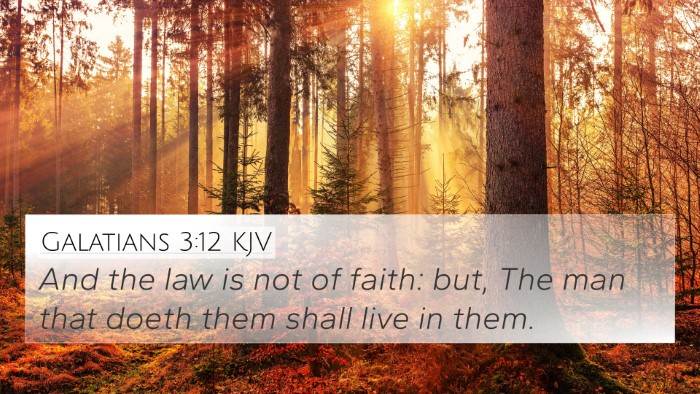
Galatians 3:12 (KJV) »
And the law is not of faith: but, The man that doeth them shall live in them.
Romans 7:10 Verse Analysis and Similar Verses
Understanding Romans 7:10
Bible Verse: Romans 7:10 - "And the commandment, which was ordained to life, I found to be unto death."
Overview
This verse presents a profound statement about the role of God’s commandments in relation to sin and death. The Apostle Paul highlights a paradox where the very law intended to give life is revealed to bring spiritual death due to humanity's sinful nature. By examining this verse through various commentaries, we gain a holistic understanding.
Commentary Insights
Matthew Henry's Commentary
Henry articulates the struggle Paul faced in reconciling the holiness of God’s law with human imperfection. The law, which was supposed to promote life, instead exposes sin, leading to death. This communion between law and human failure showcases the necessity of grace and the redemptive work of Christ, as believers cannot achieve righteousness through the law alone.
Albert Barnes' Notes on the Bible
Barnes postulates that the law's purpose is inherently good, yet it serves to illuminate and condemn sin. Paul’s realization signifies a deeper truth: that knowledge of the law can incite sinful actions as it stirs rebellion within. Barnes emphasizes the need for reliance on divine grace over human effort to attain salvation.
Adam Clarke's Commentary
Clarke adds to the discussion by noting that when Paul refers to the commandment, he is underscoring the way the law interacts with human desire. He observes that the law’s intent is pure, but human beings, in their fallen state, twist its purpose, resulting in spiritual death rather than life. Clarke speaks to the transformative potential of faith and how it shifts our relationship with the law.
Connections to Other Scriptures
To grasp the thematic connections and cross-references of Romans 7:10, we can examine several related Bible verses:
- Galatians 3:21: "Is the law then against the promises of God? God forbid: for if there had been a law given which could have given life, verily righteousness should have been by the law."
- 1 Corinthians 15:56: "The sting of death is sin; and the strength of sin is the law."
- Romans 6:23: "For the wages of sin is death; but the gift of God is eternal life through Jesus Christ our Lord."
- Romans 8:3: "For what the law could not do, in that it was weak through the flesh, God sending his own Son in the likeness of sinful flesh, and for sin, condemned sin in the flesh."
- Hebrews 10:1: "For the law having a shadow of good things to come, and not the very image of the things, can never with those sacrifices which they offered year by year continually make the comers thereunto perfect."
- James 2:10: "For whosoever shall keep the whole law, and yet offend in one point, he is guilty of all."
- Matthew 5:20: "For I say unto you, that except your righteousness shall exceed the righteousness of the scribes and Pharisees, ye shall in no case enter into the kingdom of heaven."
Thematic Connections
Romans 7:10 can be intricately linked to various themes within Christian theology, such as:
- Grace vs. Law: Understanding that while the law is holy, it is insufficient for salvation without grace.
- Sin and Death: The recognition of how sin exploits the law to lead humanity away from life.
- Redemption: Illustrating the need for Jesus Christ as the means by which believers can escape the death invoked by the law.
Practical Application
In light of the insights gathered from various commentaries and cross-references, believers are encouraged to:
- Reflect on the nature of the law and its intended purpose.
- Recognize their own weaknesses and the inadequacy of self-reliance.
- Embrace the grace of God provided through Christ as the ultimate solution to the dilemma posed by sin and the law.
Conclusion
The verse in Romans 7:10 encapsulates a critical aspect of the Christian experience, highlighting the complex relationship between the divine law and human sin. As one navigates through the New Testament and identifies pertinent cross-references, it becomes clear that understanding this verse requires acknowledging both the seriousness of sin and the grace that overcomes it.
